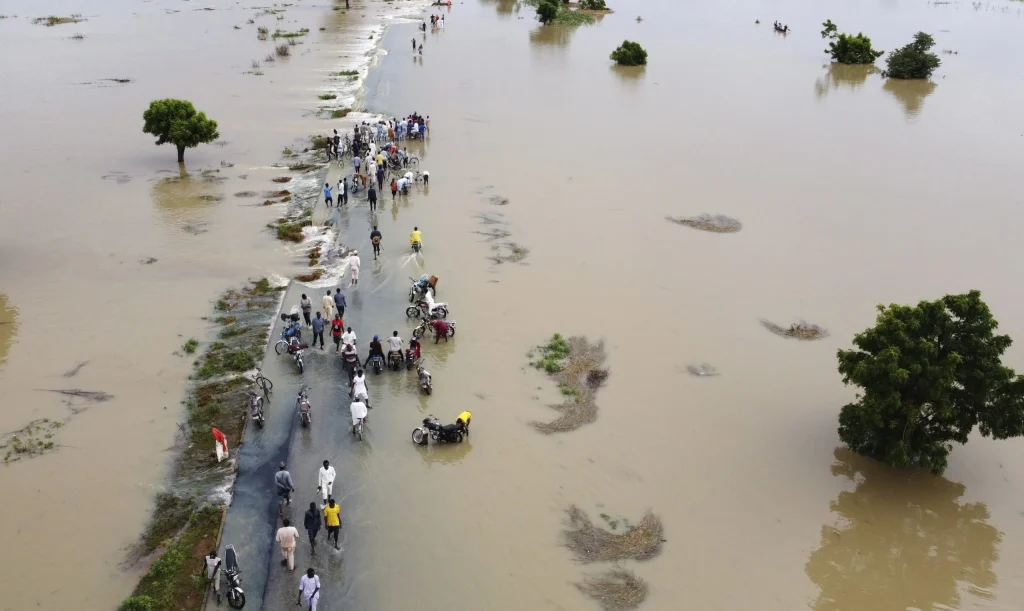
A total of 227,494 individuals have been affected, with 32,837 houses damaged due to flooding in 27 states across Nigeria, as reported by the National Emergency Management Agency (NEMA).
NEMA also mentioned that 16,488 hectares of farmland with crops have been destroyed as a result of the floods.
In a statement released by NEMA’s spokesperson, Ezekiel Manzo, in Abuja on Thursday, the Director-General, Zubaida Umar, emphasized the agency’s commitment to public awareness initiatives on solid waste management to prevent blockages in drainages and waterways.
According to NEMA’s Emergency Operations Centre, 27 states have been affected, with a significant number of people impacted and houses damaged, along with agricultural land losses.
NEMA advised State Emergency Management Agencies and community leaders to be prepared for immediate flood responses and reassured farmers about the temporary dry spell, which is expected to end soon based on NiMet forecasts.
The agency urged communities at risk and those residing near water bodies to consider relocating to safer areas before the peak of the rainy season and called on stakeholders to activate flood preparedness plans promptly.
Umar affirmed NEMA’s commitment to effectively manage disasters nationwide and mentioned the ongoing relief efforts in collaboration with State Emergency Management Agencies.
The agency’s swift responses to recent flooding incidents were attributed to their prior preparations, including search and rescue team deployments and operational readiness.
Efforts are underway to distribute relief supplies to support affected individuals and complement state government initiatives in addressing the flood impacts across the country.
Nigeria faces recurring flood challenges exacerbated by seasonal rains, inadequate drainage systems, and deforestation, resulting in significant damage and displacements.
The impacts of flooding are aggravated by urbanization, poor waste management, and climate change, necessitating improved infrastructure, early warning systems, and public awareness campaigns for effective mitigation.
